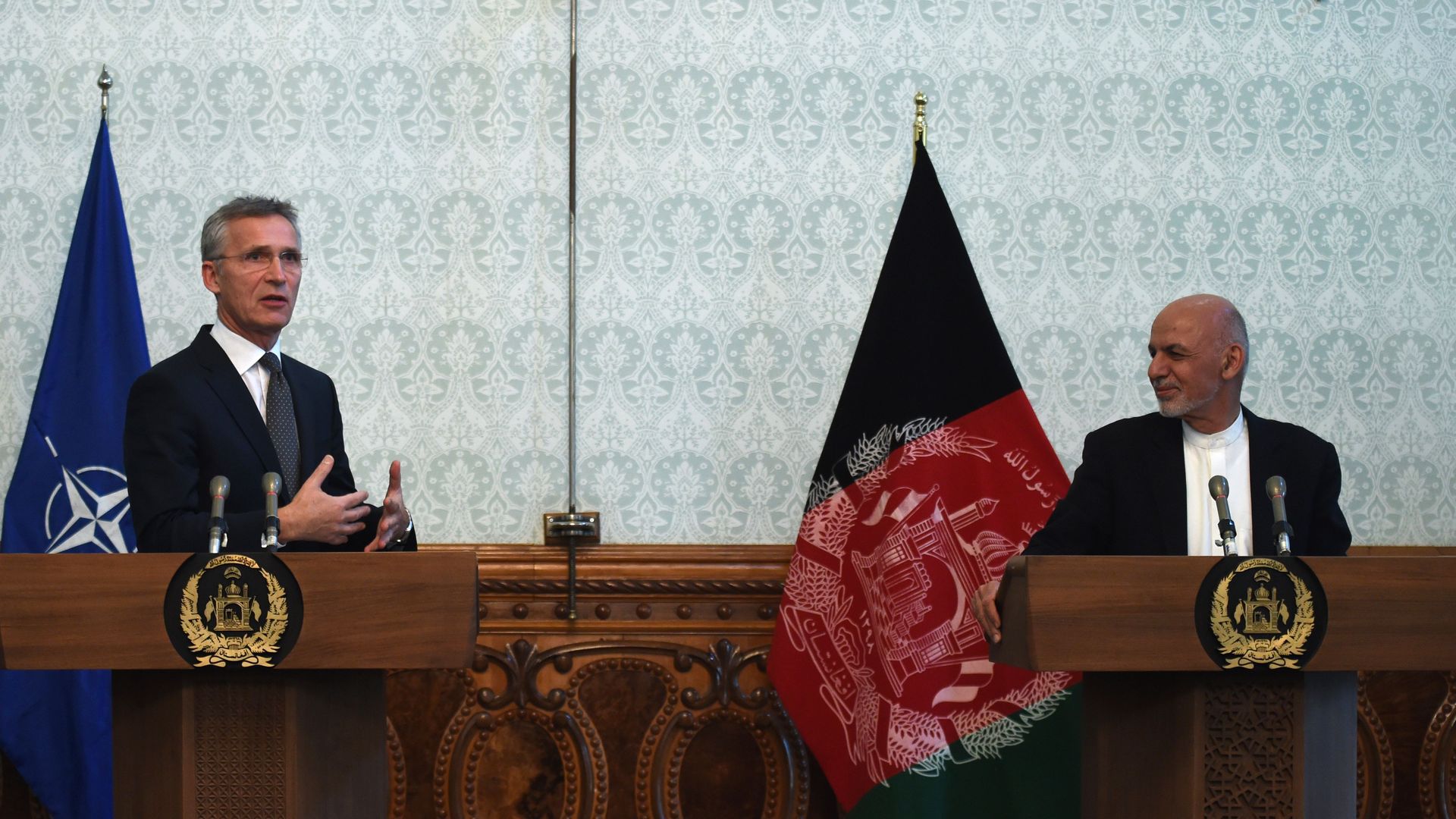Jan 10, 2019 - Politics & Policy
Expert VoicesCanceled Taliban talks bode ill for peace prospects in Afghanistan
Add Axios as your preferred source to
see more of our stories on Google.

NATO Secretary General Jens Stoltenberg during a joint press conference with Afghan President Ashraf Ghani at the Presidential Palace in Kabul, on Nov. 6, 2018. Photo: Wakil Kohsar/AFP via Getty Images
